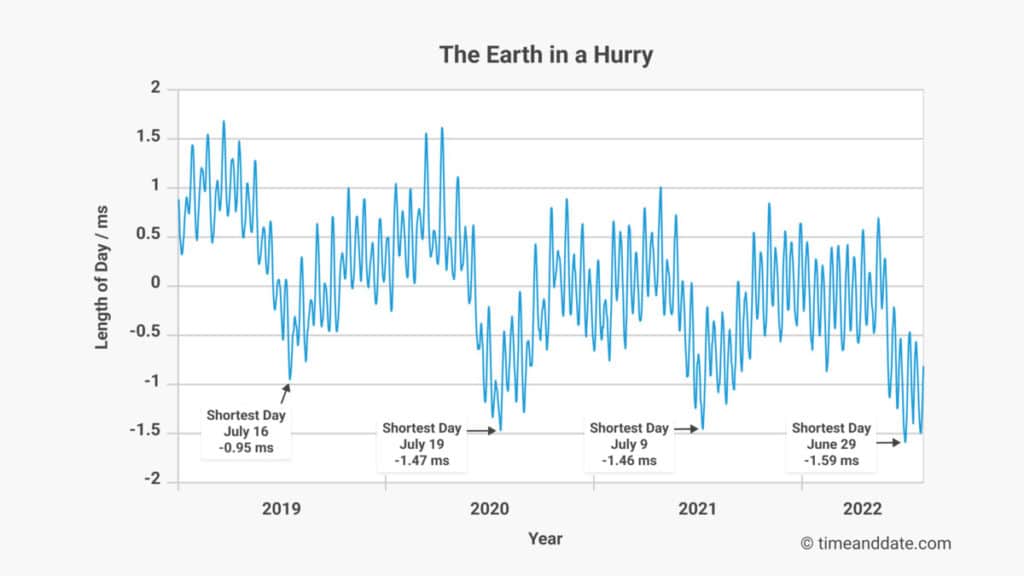On June 29, 2022, Earth smashed all its record for the shortest day: Earth completed a full spin in 1.59 milliseconds less than its standard 24-hour rotation.
In 2020, scientists discovered that, instead of slowing down, the Earth has started to spin faster. It is spinning faster than any time in the last 50 years. 2020 marked the shortest month on record for the planet since the 1960s. The shortest day of all in 2020 was -1.47 milliseconds on July 19.
Scientists are not entirely sure what is causing this increase in Earth’s rotation rate. Some have suggested that it may be due to processes in the core’s inner or outer layers, oceans, tides, or even variations in the climate.
On June 29, Earth set a new record for the shortest day of the atomic-clock era: -1.59 milliseconds. The planet smashed its record again the following month, posting a length of day of -1.50 milliseconds on July 26.
Based on data provided by the International Earth Rotation and Reference Systems Service (IERS), timeanddate.com has created a chart showing how the length of day has fluctuated in recent years.

As reported by the website, “If Earth’s fast rotation continues, it could lead to the introduction of the first-ever negative leap second. A negative leap second would mean that our clocks skip one second, potentially creating problems for IT systems.”
